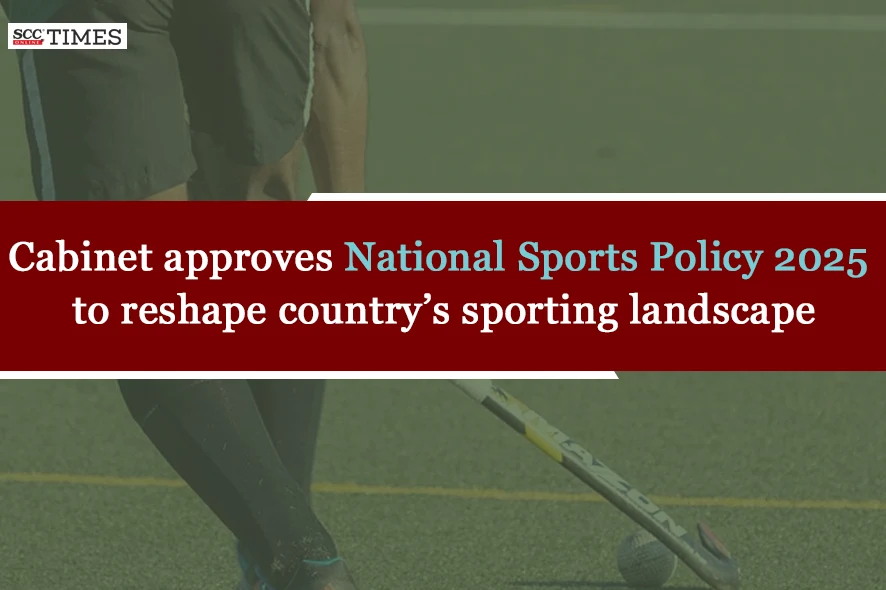On 1-7-2025, the Union Cabinet approved the National Sports Policy 2025 (‘Policy’) which will supersede the existing National Sports Policy 2001. This Policy, that has been formulated after extensive consultations involving Central Ministries, NITI Aayog, State Governments, National Sports Federations (‘NSFs’), athletes, domain experts, and public stakeholders, is aimed at reshaping the country’s sporting landscape and empowering citizens through sports.
Key Points of the National Sports Policy 2025
- Lays out a visionary and strategic roadmap to establish India as a:
- global sporting powerhouse;
- strong contender for excellence at international sporting events, including the 2036 Olympic Games.
- Aims to:
- Strengthen sports programs from the grassroots to elite levels;
- Promote the establishment of competitive leagues and competitions, and develop sports infrastructure in both rural and urban areas;
- Build world-class systems for training, coaching, and holistic athlete support;
- Enhance the capacity and governance of NSFs;
- Encourage the adoption of sports science, medicine, and technology to boost athletic performance;
- Train and develop sports personnel, including coaches, technical officials, and support staff.
- Calls for integration of sports promotion into the activities, schemes, and programs of all Ministries and Departments to achieve a holistic impact.
- To serve as a model for States and Union Territories to encourage them to revise/ formulate their own policies in alignment with national objectives.
- To be in alignment with the National Education Policy 2020 by:
- Integrating sports into school curriculum;
- Equipping educators and physical education teachers with specialized training to promote sports education and awareness.
- To also help in Economic Development by recognizing the economic potential of sports as it seeks to:
- Promote sports tourism and attract major international events to India;
- Strengthen the sports manufacturing ecosystem, and promote startups and entrepreneurship in the sector;
- Encourage private sector participation through Public-Private Partnerships (‘PPPs’), Corporate Social Responsibility (‘CSR’) and innovative funding initiatives.
- Emphasises the role of sports in driving social development by:
- Promoting participation among women, economically weaker sections, tribal communities, and persons with disabilities through focused programs;
- Revitalizing and promoting indigenous and traditional games;
- Positioning sports as a viable career option by integrating it into education, encouraging volunteering, and facilitating dual-career pathways;
- Aims to make sports as National Movement by:
- Driving mass participation and a culture of fitness through nationwide campaigns and community-based events;
- Launching fitness indices for schools, colleges, and workplaces;
- Enhance universal access to sports facilities.
- To realize the Strategic Framework, the Policy lays down a comprehensive implementation strategy:
- Establish a robust regulatory framework for sports governance, including legal framework;
- Develop innovative financing mechanisms and engage private sector participation through PPPs and CSR;
- Leverage emerging technologies, including AI and data analytics, for performance tracking, research, and program implementation;
- Create a national framework with well-defined benchmarks, Key Performance Indicators, and time-bound targets.


